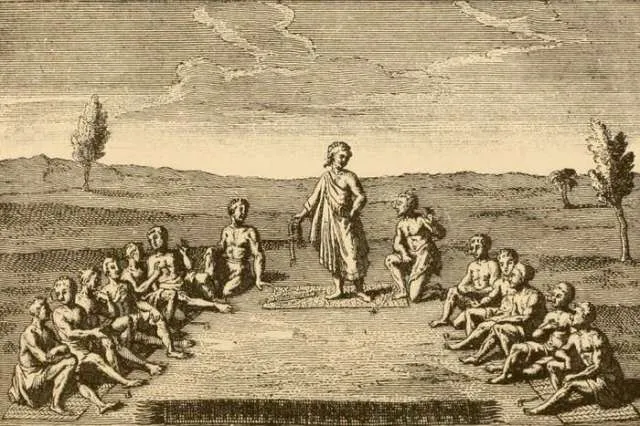
ADVERTISEMENT - CONTINUE READING BELOW
9. Canasatego and the Treaty of Lancaster
The governance of the Iroquois Confederation first gained the attention of Benjamin Franklin following another conference between the then Six Tribes and representatives of the colonies of Maryland, Pennsylvania, and Virginia. The conference, held in Lancaster, Pennsylvania in 1744, was in danger of falling apart due to bickering between the colonies. According to the published accounts of the time, an Onondaga chieftain named Canasatego addressed the colonial representatives, chiding them for their lack of unity. “We have one thing further to say, and that is we heartily recommend union and a good agreement between you our brethren. Never disagree, but preserve a strict friendship for one another, and thereby you as well as we will become the stronger”. The conference was held during King George’s War, another of the several wars between France, Britain, the colonies, and the Native tribes.
As they had at the Albany conference over two decades earlier, the Mohawk declined to attend the Lancaster conference, an indication that Iroquois unity was not quite as strong as Canasatego claimed. There were already cracks in the confederation, which would lead to the six tribes ultimately taking opposite sides during the American Revolution. Yet his speech struck Franklin as an answer to the colonies’ difficulties with Britain following the final French and Indian War, part of the Seven Year’s War. Franklin used the imagery of unity, and commented upon it in writing and in public discourse, as the colonies moved toward self-government and independence in the latter half of the 18th century. Supporters of the Iroquois influence on the Constitution point to Canasatego’s speech as proof of their affecting the thinking of the Founders in Philadelphia.

